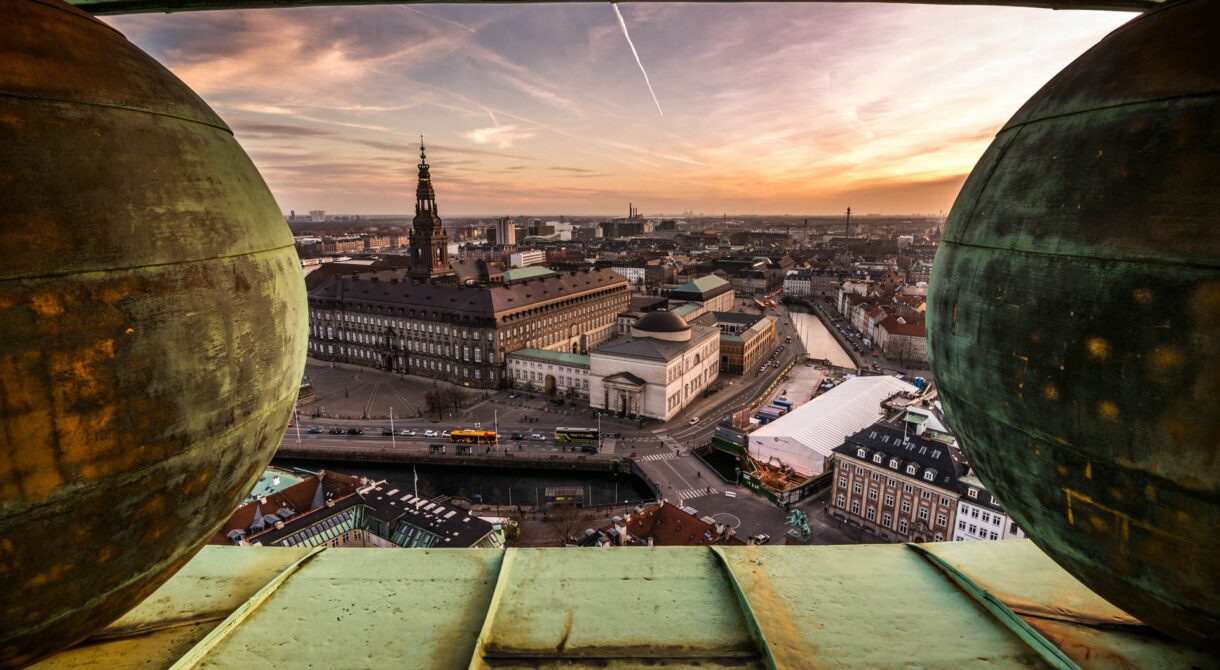The initiative was launched in 2019 bringing association and destination closer than ever under the same umbrella of achieving common goals, mainly serving the communities involved, and sometimes even the international community. It focuses on a more strategic set of ideas and guidelines, based mostly on extensive partnerships between local stakeholders and associations, with the objective of contributing to the broader societal value of association meetings. Copenhagen Legacy Lab (CLL) has kept on top of the international situation and is already looking into the future, as our interview with Bettina Reventlow-Mourier, Deputy Convention Director at Wonderful Copenhagen, reveals.
Has CLL achieved the initial goals you set out for it? Do you find that associations are starting to grasp the importance of having such a concrete tool at their disposal?
Did you know that…?
- Copenhagen Legacy Lab can help you fulfil your legacy mission in four simple and concrete steps:
-goal setting
-local stakeholder engagement
-co-creation
-legacy activity development and implementation
- Major Associations are currently implementing the process:
-International Water Association (IWA) 2022
-ESTRO 2022
-WindEurope Electric City 2021
– ESPGHAN 2022
- Concrete tools for long-lasting impact are now more than ever necessary so as to:
– Create and capture more value from the meeting
– respond to the climate crisis by unfolding the full potential of business events
– generate a stronger purpose for current and new members
– strengthen the value of face-to-face meetings
– acquire the right tools for knowledge dissemination through cross-sectorial alliances
The launch and workshop at BestCities Global Forum in Copenhagen in December 2019 were a big success and the same goes for the coverage of the publication and workshop tools, which were shared with the meetings industry during the International Congress and Convention Association (ICCA) Congress a few months ago. Our goals have certainly been met, despite the pandemic and the challenges it brought about. The legacy processes on a couple of our congresses were delayed as they were cancelled or postponed, but we continue undeterred.
As for associations, the timing to start considering legacy as a part of their congress models is really good, since the entire industry is changing radically at the moment. And there is a growing interest indeed. Making use of the tools we offer requires associations to enter into a new type of collaborative partnerships with us as the destination. Something we all need to practice on. A part of the journey we are really enjoying and looking forward to expanding.
Can you give examples of associations which have already benefited from your proposition and the activities they used to reach their legacy goals?
We managed to attract the European Society for Radiotherapy and Oncology (ESTRO) to Copenhagen because of the legacy element in the bid. ESTRO’s vision towards 2030 is ‘Optimal Health for All, Together’ and the aim of the congress, as well as that of the Danish host group, is to enhance multidisciplinary collaboration across Europe. Some of the activities that are being developed to reach this goal are a series of guidelines on multidisciplinary collaboration, a European policy to bring down waiting lists by organizing a multi stakeholder learning framework and a series of virtual seminars by 29 Danish working groups, who share their experiences with interdisciplinary research.
The other congress we are currently working with is WindEurope Electric City, which will take place this year. The shared vision of this event is to promote wind energy as a cornerstone and a key component of the global energy transition. To achieve this, we have mobilized a large and varied stakeholder group. Some of the activities include an Intergovernmental Forum, Talent Attraction and Talent Development initiatives and an Innovation Park. WindEurope are thrilled, as the process of viewing their event through a legacy lens enables them to extract new types of value never before realized.
Is the initiative always work in progress?
Yes, it is and it must never become static. We have received funding from Copenhagen Municipality for the next four years, which helps us to further develop our product. Broader partnerships with relevant stakeholders in Denmark and deeper partnerships with international organizations in the industry, like BestCities – an alliance of 12 cities – and The Iceberg – an online platform focused on legacy, are definitely in our plans.
To keep the project relevant, we also plan to develop tools to do legacy processes virtually and go deeper with the integration of the UN SDGs. And then there is the measurement of the impacts of strategic legacy planning, which is the probably single most important area to develop. We are already working with MeetDenmark and Gaining Edge – a consulting company for the industry – in measuring our current congresses and have also contributed to the BestCities report on measuring.
Where do you see the initiative go from here?
I do hope that the initiative will serve as an inspiration for both associations and destinations, and that many more associations will embrace legacy work as part of their strategic congress methodology. We are here to help them achieve their congress goals and at the same time get their input as to how the initiatives can continue to improve. Only is this way can we ensure, that the Copenhagen Legacy Lab keeps evolving and stays relevant.
More information here.
